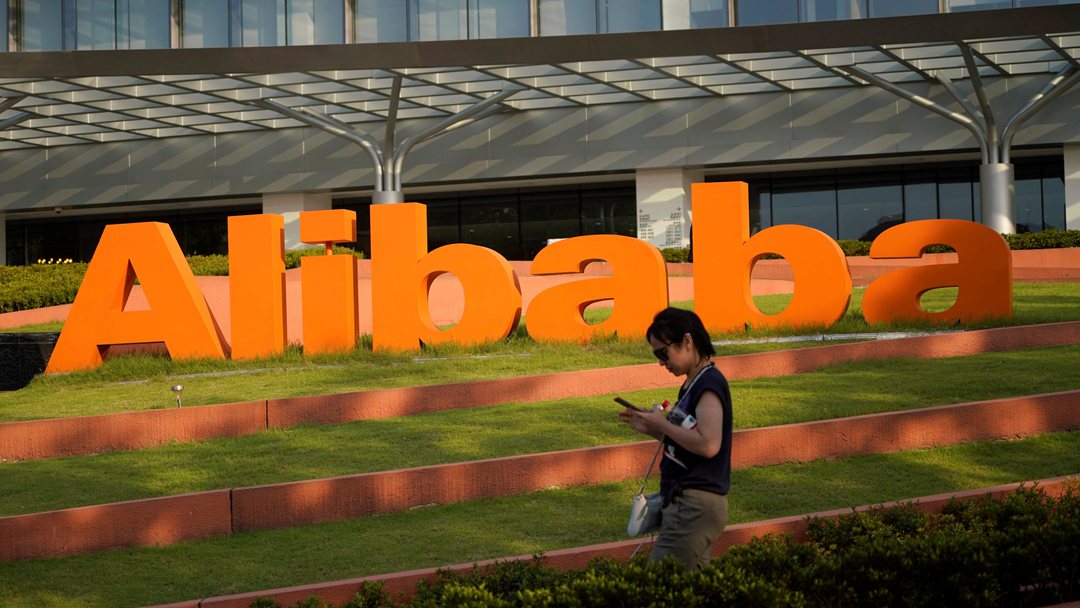
The logo of Alibaba Group is seen at the company's headquarters in Hangzhou, Zhejiang Province, China, July 20, 2018. /VCG
The logo of Alibaba Group is seen at the company's headquarters in Hangzhou, Zhejiang Province, China, July 20, 2018. /VCG
The engagement of Chinese companies, such as the Alibaba Group, in electronic trade has rekindled sales for African businesses during the COVID-19 pandemic, a senior United Nations official said on Friday.
The Chinese engagement has in particular boosted the sales and trading of Africa's major economic commodities such as coffee, which lay fallow hitherto in storehouses for months due to freighting stand-stills caused by the COVID-19 global lockdown, Vera Songwe, under-secretary-general of the United Nations and executive secretary of the UN Economic Commission for Africa (UNECA) said on Friday.
"COVID-19 is particularly endangering global trade. That is why I am very happy to be part of this Electronic World Trading Platform (eWTP) initiative with the Alibaba business group," the ECA chief said.
"Africa, which has already been trading with China, can improve trading at this time based on a number of goods on which it possesses comparative advantage," Songwe added.
"Rwanda is already trading its Rwandan chili and coffee. We hope that with the eWTP, we can put more goods from the continent notably, coffee from Ethiopia, shea butter from Mali, white pepper from Cameroon, vanilla from the Comoros Islands and saffron from Madagascar, among others, on the platform," Songwe added. "This is what happened during a livestream coordinated by the Alibaba Group to position small-scale world brands on the eWTP, an initiative which facilitates business-to-consumer (B2C) sales."
The cash-in is explained in terms of the wide access to customers especially in China via the eWTP whose huge demand, in terms of economies of scale, would now lower overall freighting costs for the supplies, according to the ECA.
The ECA chief, who addressed participants of the livestream from the ECA headquarters in the Ethiopian capital, Addis Ababa, said on Friday the ECA is taking action to getting "many more small brands from Africa with distinct products to access the platform and make sales during and after the current health crisis."
The UN ECA is helping to bring unique African products and their promoters to the platform in a practical COVID-19 response move.
The Rwandan coffee brand, known as Gorilla's Coffee, is one of the beneficiaries of its engagement with the Chinese Alibaba Group, through the eWTP.
David Ngarabe, CEO of the Gorilla's Coffee, who witnessed the sale of 3,000 bags of coffee with the help of a livestream session on April 14 that was coordinated by the Alibaba under the eWTP platform rejoiced at the feat following months of slack business as the COVID-19 lockdowns ruptured the supply chains especially to cafes and hotels.
Eric Jing, Alibaba Group Director and Executive Chairman of Ant Group, also said in an online discussion hosted by the UNECA that "we want to support SMEs worldwide to recover from the outbreak, resume production and secure orders in their times of need."
"Through the livestream, we look forward to reopening global trade, starting with helping businesses reopen," he went on.
The ECA chief also stressed that "at a time when the world is closing down, it is particularly important that we continue with trade because that's the only way we can build a prosperous world and a prosperous Africa, together with China."
As Africa thinks about building and strengthening its trade with itself, the African Continental Free Trade Area (AfCFTA) remains the cornerstone of Africa's trade relationship with itself and the world.
With the opening up of the eWTP to more countries on the continent, Africa can do more together to ensure that no one is left behind from the COVID-19 crisis.
First proposed by Alibaba Group founder Jack Ma in 2016, the eWTP has been recognized by the G20 and launched in China, Malaysia, Belgium, Rwanda and Ethiopia.
It is a private sector-led, multi-stakeholder initiative offering SMEs easier access to new markets via simple and straightforward regulations.
It also offers training and support in areas such as e-commerce, logistics, financing, cloud computing and mobile payments.
Source(s): Xinhua News Agency